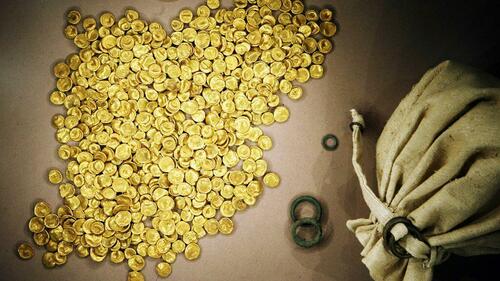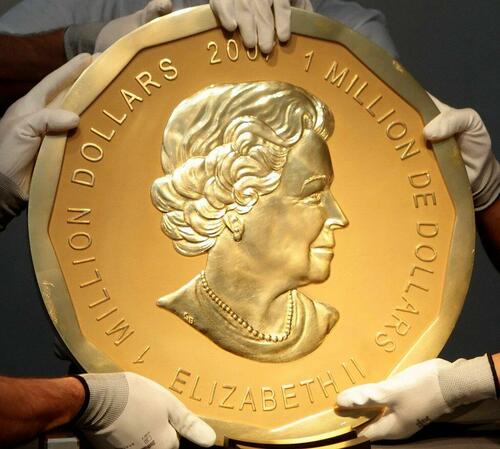
Burglars in Bavaria have stolen 'several million euros' worth of gold from a Celtic Roman Museum in Manching near Ingolstadt, Die Welt reports.
The treasure, which is over two thousand years old, consisted of 483 coins which were discovered near Manching in 1999.
The heist took just nine minutes.
At 1:26 a.m., an outside door was pried open, said the Vice President of the State Criminal Police Office, Guido Limmer, on Wednesday in Manching near Ingolstadt. The thieves then stole the coins from two showcases and left the museum at 1.35 a.m. – after only nine minutes. -Die Welt (translated)
"The loss of the Celtic treasure is a disaster," said Bavaria's minister of science and arts, Markus Blume. "As a testament to our history, the gold coins are irreplaceable."
The identity of the perpetrators is unknown, while investigators are probing possible connections to the 'spectacular' theft of jewels from the Green Vault in Dresden, as well as another coin theft from the Bode Museum in Berlin.
The Big Maple Leaf (BML) is a 100-kilogram (220-lb) gold coin that costs $1 million (CAD) (3,215 troy ounces). The first BML manufactured is still in storage, but the Royal Canadian Mint (RCM) produced a set of six of these coins in 2007. A single Big Maple Leaf had a market value of about $4 million as of March 2017. (USD). One of the coins was stolen from a Bode museum on March 27, 2017. -Arkeonews.net

According to Guido Limmer, VP of the State Criminal Police Office, there are "parallels" between the cases, though actual connections are unknown.

Investigators are also looking into whether the burglary was related to sabotage at a local phone distribution branch in Manching located around 1km from the museum, which paralyzed the telephone network and the internet, thus preventing the alarm system from notifying authorities.
Burglars in Bavaria have stolen ‘several million euros’ worth of gold from a Celtic Roman Museum in Manching near Ingolstadt, Die Welt reports.
The treasure, which is over two thousand years old, consisted of 483 coins which were discovered near Manching in 1999.
The heist took just nine minutes.
At 1:26 a.m., an outside door was pried open, said the Vice President of the State Criminal Police Office, Guido Limmer, on Wednesday in Manching near Ingolstadt. The thieves then stole the coins from two showcases and left the museum at 1.35 a.m. – after only nine minutes. -Die Welt (translated)
“The loss of the Celtic treasure is a disaster,” said Bavaria’s minister of science and arts, Markus Blume. “As a testament to our history, the gold coins are irreplaceable.”
The identity of the perpetrators is unknown, while investigators are probing possible connections to the ‘spectacular’ theft of jewels from the Green Vault in Dresden, as well as another coin theft from the Bode Museum in Berlin.
The Big Maple Leaf (BML) is a 100-kilogram (220-lb) gold coin that costs $1 million (CAD) (3,215 troy ounces). The first BML manufactured is still in storage, but the Royal Canadian Mint (RCM) produced a set of six of these coins in 2007. A single Big Maple Leaf had a market value of about $4 million as of March 2017. (USD). One of the coins was stolen from a Bode museum on March 27, 2017. –Arkeonews.net

According to Guido Limmer, VP of the State Criminal Police Office, there are “parallels” between the cases, though actual connections are unknown.

Investigators are also looking into whether the burglary was related to sabotage at a local phone distribution branch in Manching located around 1km from the museum, which paralyzed the telephone network and the internet, thus preventing the alarm system from notifying authorities.





